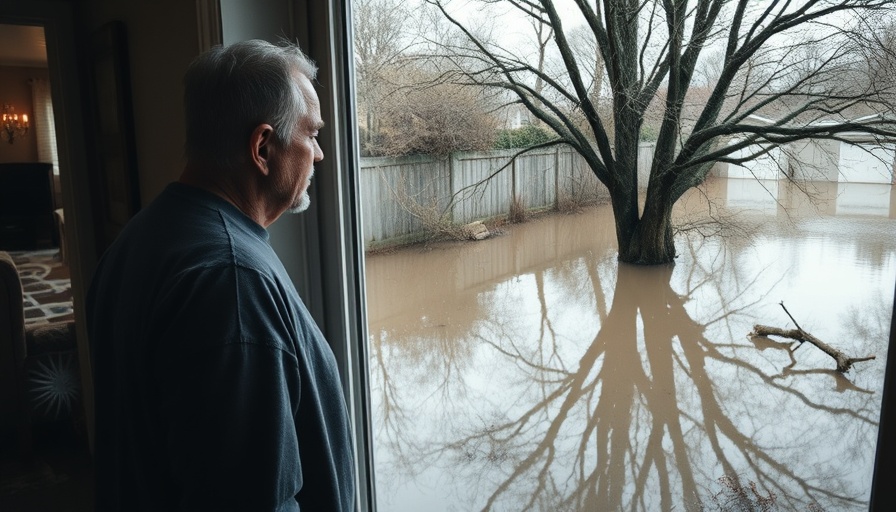
Unending Floods: The Lingering Impact of Hurricane Milton
Despite the time that has passed since Hurricane Milton's devastating landfall in late 2024, many Florida residents, particularly in Pasco and Polk counties, still find themselves grappling with the aftermath. Months later, the evidence of destruction is stark; homes continue to be surrounded by water, and recovery seems like a distant dream for countless families.
Residents Struggle in the Shadow of Disaster
WUSF's reporter Sky Lebron captured heart-wrenching stories from individuals living through the extended flooding. Richard Beckwith, a resident of Zephyrhills, faced the daunting reality that his home was not even resting correctly on its foundation due to the flooding. Fellow resident Don Ferguson shared a similar plight; the water line inside his home stood halfway up his walls. Such tales highlight a feeling of isolation among those affected, emphasizing that they feel unheard by local agencies and assistance programs as they navigate this vulnerable situation.
Community Resilience Amidst Natural Disasters
As families attempt to salvage what they can, many have found themselves tearing down walls and ripping up floors, or, in the case of Don Ferguson, asking friends to walk on planks just to reach his front door. As these accounts demonstrate, the emotional weight of such loss can be unbearable. Despite the ongoing struggles, these resilient residents remain hopeful for recovery and restoration.
How Many Lives Were Affected?
According to CBS News, the scope of destruction caused by Hurricane Milton is significant. At least 17 lives have been lost, and thousands remain displaced. The storm, which made landfall as a Category 3 hurricane, wreaked havoc on coastal and inland communities, presenting a brutal reminder of nature's power and unpredictability. In addition to flooding, there were reports of multiple tornadoes that also caused tremendous destruction.
Official Responses: Helping or Hindering?
Florida Governor Ron DeSantis has emphasized the resilience of the community, asserting that these areas will eventually recover. However, many feel unsupported as they await aid and the return of basic utilities. A notable concern raised by local residents is whether aid measures are adequate, given the extensive need that continues to exist.
Looking Ahead: Future Preparedness and Lessons Learned
As the 2025 hurricane season approaches, many Floridians are sharpening their focus on preparing for storms. The recent experiences underline the crucial importance of emergency preparedness and the need for robust infrastructures that can withstand natural disasters. For affected residents, these precautions could mean the difference between recovery and prolonged hardship.
Call to Action: How You Can Help
If you wish to support those affected by Hurricane Milton, consider contributing to local charities and organizations structured to offer assistance in recovery efforts. Your generosity can provide essential resources for families trying to rebuild their lives after such devastating losses.
The tragic aftermath of Hurricane Milton serves as a poignant reminder of the resilience within our communities. By standing firm and supporting one another, Florida residents can hope for a swifter recovery and a secure future.
 Add Row
Add Row  Add
Add 



Write A Comment